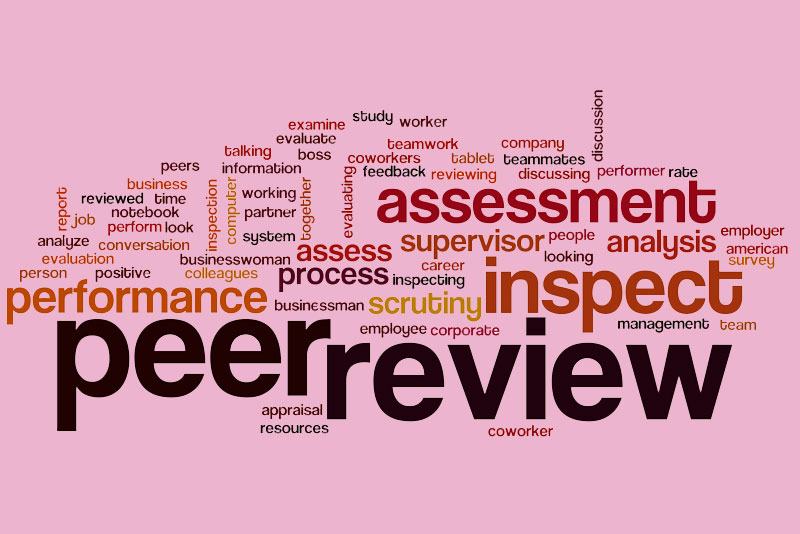Peer reviews can have a major impact on the outcome of a medical claim. These reviews are paper-based evaluations that are prepared by credentialed, trained and experienced physicians. The objective of the peer review is to provide an informed expert opinion regarding the aptness of care, medical necessity, any investigational tests performed and other related issues. One of the most important medical review solutions, peer review reports have become a recognized and essential practice in appeal resolution and medical cost control.
What Questions Does a Peer Review Answer?
A professional medical peer review will provide answers to important aspects including the following:
- Medical necessity
- Prior medical conditions
- Length of stay at the hospital/healthcare facility
- Proper coding practices
- Unbundling
- Cosmetic vs. reconstructive procedures
To ensure that peer review physicians can work uninterruptedly and provide an unbiased expert opinion, they require easy and well-organized access to the following information:
- Prior and current medical records
- Diagnostic images
- Prior utilization reviews and recommendations
- Guidelines (automated and integrated) applicable to each diagnosis
- Regulations pertaining to each state.
An extensive review of the medical records, bills, and other relevant documents will provide a clear understanding of the claimant’s health condition as well as the appropriateness of care provided. This will in turn help with formulating an expert medical opinion. Considerable time and energy are required to perform a peer review and review experts have to peruse voluminous medical history. Current as well as prior medical history is a key component when determining medical necessity or appropriateness of procedures and services provided to the patient. A Riskandinsurance.com article (“In Search of a Great Peer Review”) gives an example in this regard. The case mentioned is that of an injured worker with a knee injury, whose MRI shows the tear. The treatment request meets all compliance requirements and guidelines. A peer review of the highly elaborate medicals shows that this worker underwent this surgery several times earlier without any benefit. A professional peer reviewer would have gone through all the medicals and would also have known that a meniscus tear looks just like a scar from an earlier surgery. More surgical procedures are not indicated since earlier surgeries had no benefit.
Advantages of a Professional Peer Review
When a peer review is performed by trained and experienced reviewers, the main advantages are that,
- The review is done with clinical insight and the reviewer is able to strike a balance between evidence-based guidelines and clinical experience.
- The peer reviewer can communicate effectively with the treating physicians and ensure a productive conversation that is most important when it comes to generating a reliable peer review document.
- The peer review document or report is quality assured to ensure that it is based on thorough clinical reasoning that is consistent and apt from the standpoints of medical records, diagnosis, and guidelines. Careful proofreading will ensure that the spelling, grammar and other details are appropriate. Also, the QA will make sure that all questions posed by the insurance adjuster are answered, the treating physicians’ perspective is included, and all jurisdictional requirements are met.
Medical Records Services Provide Valuable Assistance
Peer review physicians, insurers, and insurance attorneys find medical records services immensely helpful to streamline the peer review process. These support services include:
- Proper organization and indexing of medical records
- Preparation of a list of evidence-based factors in the medical records that can be used to support causality, injury, restrictions/limitations, functionality, appropriateness of medical care provided, diagnosis, treatment advice and so on.
- Missing medical records that may be important to the case are identified.
- Preparation of accurate medical case chronologies that provide a clear view of all the medical encounters, along with the date and time of service, care providers, and other important details.
- Preparation of medical case summaries highlighting key facts of the case.
- Ensuring compliance and thoroughness of data.
Unbiased Peer Reviews Have a Positive Impact
A comprehensive peer review that is evidence-/standards-based, has an important part to play in the outcome of a claim. This has increased the demand for peer review support services among payers, third-party administrators, government agencies, and self-insured agencies. Whatever be the type of claim – disability, workers’ compensation, group health, fraud/abuse, or any other – professional reviews are performed in compliance with all state or jurisdictional regulations, cybersecurity rules, and maintaining top level quality assurance standards.
Considering the impact of well-drafted peer reviews on claim outcome, these reviews help ensure that the patient/claimant receives medically necessary services. By avoiding payment for medically unnecessary services, healthcare costs can be controlled and any fraudulent payment can be stopped. Peer review physicians follow the latest clinical guidelines and evidence-based medicine so that their reviews are flawless. Since the review process is streamlined, claims can be settled without much delay. As a result, health plan members are satisfied with improved quality of healthcare and safe treatments, and there is enhanced transparency for both providers and payers.




